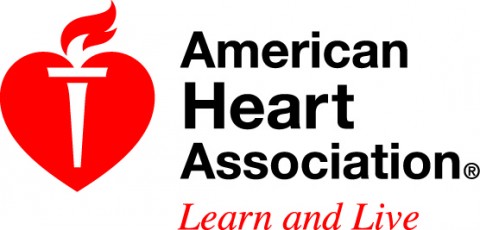 Dallas, TX – Frequent cannabis (marijuana) use among young people was linked to an increased risk of stroke and people diagnosed with cannabis use disorder were more likely to be hospitalized for heart rhythm disturbances (arrhythmias), according to two new preliminary studies to be presented at the American Heart Association’s Scientific Sessions 2019 — November 16th -18th in Philadelphia.
Dallas, TX – Frequent cannabis (marijuana) use among young people was linked to an increased risk of stroke and people diagnosed with cannabis use disorder were more likely to be hospitalized for heart rhythm disturbances (arrhythmias), according to two new preliminary studies to be presented at the American Heart Association’s Scientific Sessions 2019 — November 16th -18th in Philadelphia.

The Association’s Scientific Sessions is an annual, premier global exchange of the latest advances in cardiovascular science for researchers and clinicians.
In addition, the study linking cannabis use disorder to an increased risk of stroke (Oral Presentation 333) will be published in Stroke, a Journal of the American Stroke Association, a division of the American Heart Association.
The American Heart Association does not have a position regarding legalizing cannabis, however, in locations where cannabis is legal, the Association notes that there should be a public health infrastructure in place that integrates the use of cannabis into comprehensive tobacco control efforts such as age restrictions for purchasing, comprehensive smoke- free air laws and other measures.
“As these products become increasingly used across the country, getting clearer, scientifically rigorous data is going to be important as we try to understand the overall health effects of cannabis,” said Robert Harrington, M.D., president of the American Heart Association and the Arthur L. Bloomfield professor of medicine and chairman of the department of medicine at Stanford University in Stanford, California.
Stroke risk may be higher among young cannabis users (Oral Presentation 333)
Young people who used cannabis frequently and also smoked cigarettes or used e-cigarettes were three times more likely to have a stroke compared to non-users.
The study also showed that cannabis users who did not use tobacco products but reported using cannabis for more than 10 days a month were nearly 2.5 times more likely to have a stroke compared to non-users.
The cannabis users were also more likely to be heavy drinkers, current cigarette users and e-cigarette users, which may have also influenced their risk, even though the researchers adjusted for those factors in their analysis.
Participants in the study included more than 43,000 adults aged 18 to 44, of whom nearly 14% reported using cannabis in the last 30 days. Compared with non-users, marijuana users were often younger, non-Hispanic white or black, were less likely to be college graduates and were often physically active.
The study was observational and did not examine the biological mechanism connection between stroke and cannabis use, so it identified a potential link, rather than proving cause and effect. The data analyzed was from the behavioral risk factor surveillance system (BRFSS) (2016-17), a nationally representative cross-sectional survey collected by the U.S. Centers for Disease Control and Prevention.
Co-authors are Sahithi Pemmasani, M.B.B.S., and Rupak Desai, M.B.B.S. Author disclosures are in the abstract and manuscript. This study did not receive outside funding.
Cannabis use disorder linked to serious heart rhythm abnormalities (Poster Presentation Mo2053)
People diagnosed with cannabis use disorder had a 50% greater risk of being hospitalized for an arrhythmia, a disorder of the heart’s rhythm, compared to non-users. Cannabis use disorder is characterized by frequent, compulsive use of marijuana, similar to alcoholism.
In this study, young African American men with the disorder, between 15 to 24 years of age, had the greatest risk of being hospitalized for arrhythmia, although cannabis use disorder was more common among white men, 45 to 54 years of age.
While some arrhythmias are benign, others can be life-threatening. “The effects of using cannabis are seen within 15 minutes and last for around three hours. At lower doses, it is linked to a rapid heartbeat. At higher doses, it is linked to a too-slow heartbeat,” said Rikinkumar S. Patel, M.D., M.P.H., resident physician in the department of psychiatry at the Griffin Memorial Hospital in Norman, Oklahoma.
“The risk of cannabis use linked to arrhythmia in young people is a major concern, and physicians should ask patients hospitalized with arrhythmias about their use of cannabis and other substances because they could be triggering their arrhythmias,” said Patel.
Data for this study was derived from the Agency for Healthcare Research and Quality’s Nationwide Inpatient Sample (post-legalization period, 2010-2014), and this is the first, large-scale, population-based study to evaluate a link between cannabis use disorder and hospitalization for arrhythmias. Although it does not prove cause and effect, it establishes an important trend.
Co-author is Sowmya Madireddy, M.D. Author disclosures are in the abstract. This study did not receive any external funding.
Additional Resources:
- Spanish Release
- Uncertainties remain about link between marijuana and stroke risk
- Marijuana use may be linked to temporarily weakened heart muscle
- For more news at AHA Scientific Sessions 2019, follow us on Twitter @HeartNews #AHA19.



